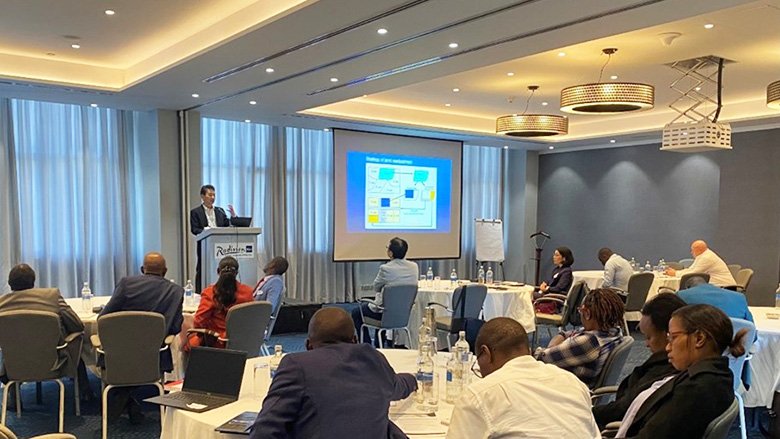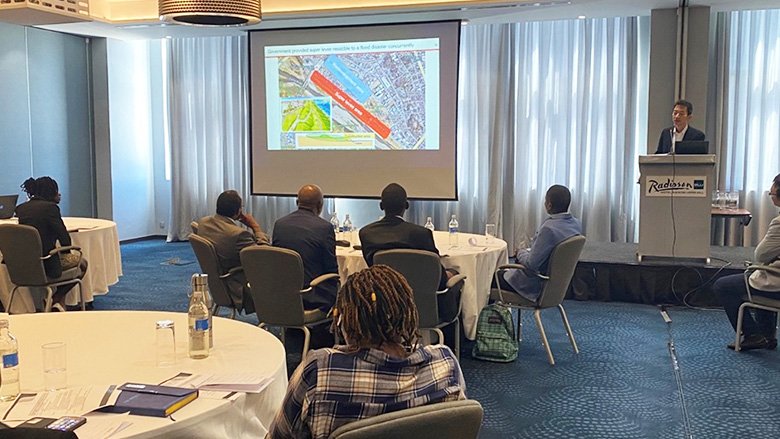Resilient Urban Railway Workshop
Nairobi, Kenya
January 26-27, 2023
Urban accessibility is an overwhelming challenge in the large cities of Kenya, particularly in the Nairobi Metropolitan Area (NMA), which as of 2019 has a population of 6.6 million. Due to rapid urbanization, there is a pressing need to improve urban transport and mobility in NMA to be able to advance economic and social development. Currently, the railway is the only formal and regulated public transport service available in the NMA, yet it accounts for only one percent of the modal share. [1] The Government of Kenya has prioritized the improvement of commuter rail services to address the current mobility challenges, and Japanese experts are supporting these efforts by sharing their experiences and knowledge around urban railway operations.
With support from the GFDRR Japan-World Bank Program for Mainstreaming Disaster Risk Management in Developing Countries (the Japan Program), two Japanese railway experts were invited to Nairobi to share their knowledge around railway operations including increasing resilience in the face of a changing climate. Participants included more than 40 representatives from Kenya Railway Corporation (KRC); officials from the Ministry of Roads and Transport; the Ministry of Land, Housing and Urban Development, and Public Works; the Nairobi Metropolitan Area Transport Authority (NaMATA); representatives from county governments in Nairobi, Mombasa, Kisumu, and Eldoret; and the Council of Governors joined the Resilient Urban Railway Workshop. Led by Urban Transport Specialists from the World Bank��s Kenya Urban Mobility Improvement Project (KUMIP) and other specialists from the World Bank, interactive technical sessions were designed to share how the Japanese made commuter rails more resilient while highlighting how these lessons are applicable to NMA railways.


